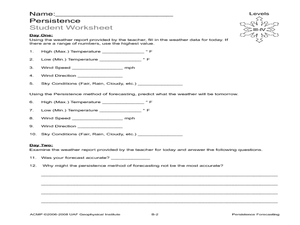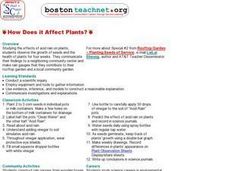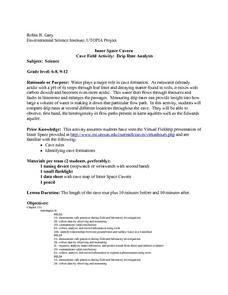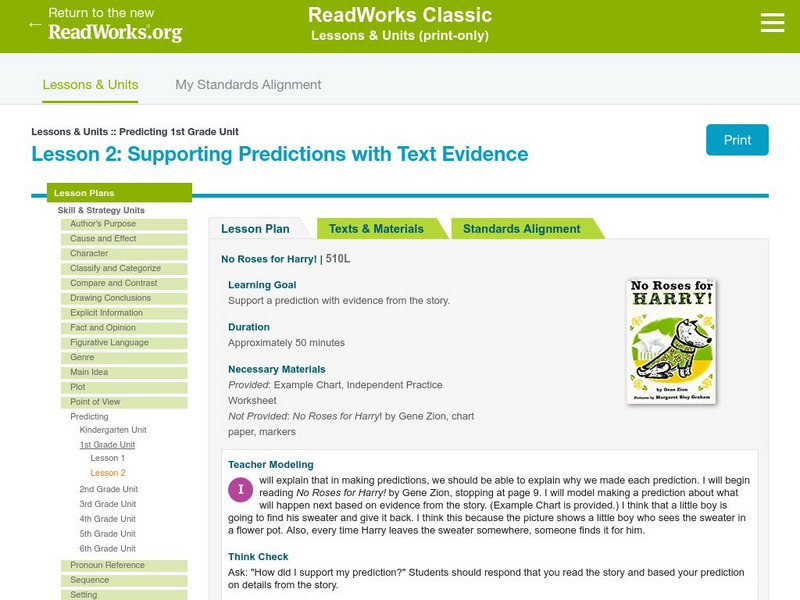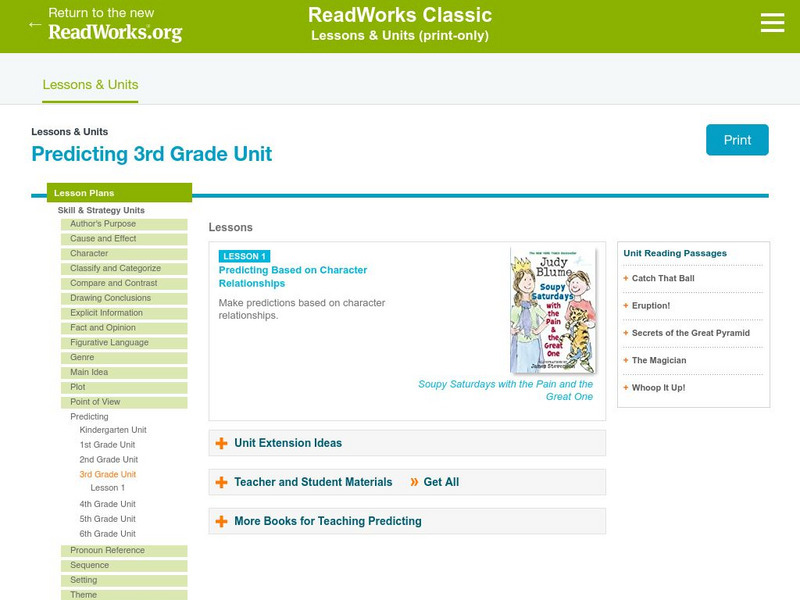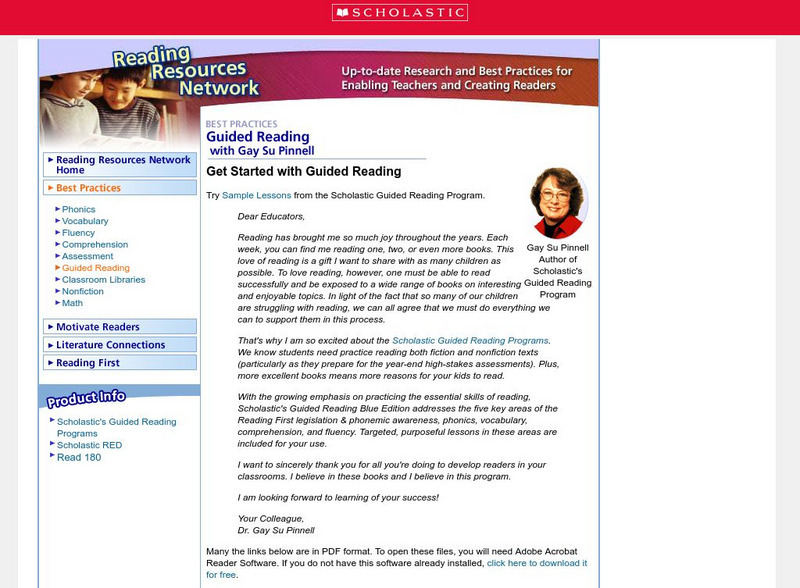Curated OER
Layering the Soil
Students study and classify soil. In this soil science lesson, students classify soil by texture and size and study soil horizons. Students label the soil types with their specific soil horizon and learn about permafrost. Students...
Curated OER
Personal Ecosystem
Young scholars build an aquatic ecosystem using large glass pickle jars. In this ecology lesson, students build and ecosystem then observe and collect data on the habitats. In this long term project young scholars observe a population...
Curated OER
Weather
Students study seasonal weather and interview elders in their community about how weather affects traditional activities. In this seasonal weather lesson, students talk about the seasonal, traditional activities they participate in....
Curated OER
Worming Your Way Through the Soil
Students study soil, living and non-living particles in the soil, and learn about composting. In this soil study lesson, students study soil samples and discuss the living and non-living components of the soil. Students classify the...
Curated OER
Collecting Compost
Students observe a composting box. For this soil lesson, students create a composting bin by using a bin, newspaper, worms, and food scraps. Students create a composting food web.
Curated OER
Persistence Forecasting
Learners study weather forecasting. In this weather lesson plan, students explore forecasting weather methods and do a forecast. Learners study weather reports and discuss the elements of a forecast. Students study the method of...
Curated OER
How Does it Affect Plants?
Middle schoolers examine the effects of acid rain on plants. They observe the growth of seeds and the health of different plants for a month. They share their findings with the community.
Curated OER
Inner Space Cavern Cave Field Activity: Drip Rate Analysis
Young scholars compare drip rates at several different locations throughout a cave. They observe, first hand, the heterogeneity in flow paths present in karst aquifers such as the Edwards aquifer.
Curated OER
Weather Instrument Use and Application
Eighth graders measure temperature, wind speed and pressure using Skymaster SM-28. In this earth science lesson, 8th graders collect data and record observations taken from outdoors. They explain why numerical values are different in...
Better Lesson
Better Lesson: Introduction to Making Predictions and Inferences
First graders will engage in a shared reading of "Mr. C's Dinner" so that we can build a foundation for understanding what it takes to make good predictions and inferences.
E Reading Worksheets
E Reading Worksheets: Making Predictions Worksheets and Lessons
In this learning module, students will learn more about making predictions in reading. Worksheets and a leson are provided to support Tier I, Tier II, and Tier III students.
Read Works
Read Works: 1st Grade Unit: Supporting Predictions
[Free Registration/Login Required] A lesson utilizing the book No Roses for Harry! by Gene Zionin in which students make a prediction and then support it with details from the text. Ideas for direct teaching, guided practice, and...
SMART Technologies
Smart: Inference and Prediction
Students will learn the difference between making a prediction and an inference as they engage in class discussions about both reading skills, play a game, look at art, and listen to songs.
Read Works
Read Works: Predicting 1st Grade Unit
[Free Registration/Login Required] A two-lesson unit designed to teach students to make predictions and support them with details from the text. Lessons are based on the books Wemberly Worried by Kevin Henkes and No Roses for Harry! by...
Reading Rockets
Reading Rockets: 103 Things to Do Before/during/after Reading
The highly-respected Reading Rockets program offers both teachers and students a toolkit of ways to connect more actively with the materials they read. Some of these techniques are specifically for fiction-reading, others are designed...
Tom Richey
Slide Share: Prediction and Inference: A Reading Strategy
This downloadable slideshow focuses on prediction and inference including the similarities and differences between them, when the reader does each, and questions to ask as you are reading.
PBS
Pbs Learning Media: Blue Ribbon Readers: The Detective's Notebook Game
An online learning game where students read the notes in a detective's notebook and make inferences and predictions to solve the case.
Read Works
Read Works: Predicting 3rd Grade Unit
[Free Registration/Login Required] This is a instructional activity designed to teach students to make predictions based on relationships between characters. The instructional activity is based on the book Soupy Saturdays with the Pain...
Khan Academy
Khan Academy: Fitting Quadratic and Exponential Functions to Scatter Plots
Determine if a quadratic or exponential model fits a data set better, then use the model to make a prediction. Students receive immediate feedback and have the opportunity to try questions repeatedly, watch a video or receive hints.
SRI International
Performance Assessment Links in Science: Follow Those Tracks
This lesson plan requires students to make an inference (hypothesis) about two animals based on the tracks they leave behind. Students are asked to write a story explaining their inference.
Scholastic
Scholastic: Getting Started With Guided Reading
How do you get started with guided reading? At this site one can find the answer to this question. The online lesson plans will help get students started with guided reading.
McREL International
Mc Rel: Glue Polymer (Whelmer #15 Learning Activity)
An easy to do activity that investigates the basic principles behind chemical bonding. The activity is written in lesson plan format that meets NSES standards.
Polk Brothers Foundation Center for Urban Education at DePaul University
De Paul University: Center for Urban Education: Chicago High Schools [Pdf]
"Chicago High Schools" is a one page, nonfiction, reading passage about high schools in Chicago including specialty high schools and the basic requirements for all high schools. It is followed by constructed-response questions which...
PBS
Pbs: Multiple Methods of Reading Instruction
This article surveys three strategies to incorporate into classroom repertoire. They include guided reading, choral reading, and readers' theater.







